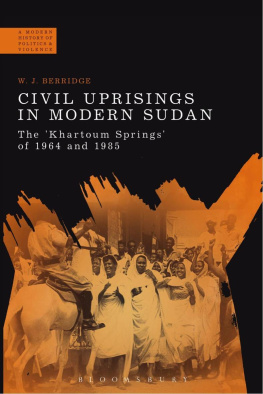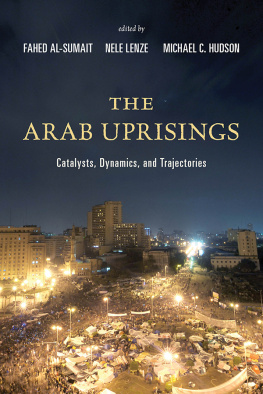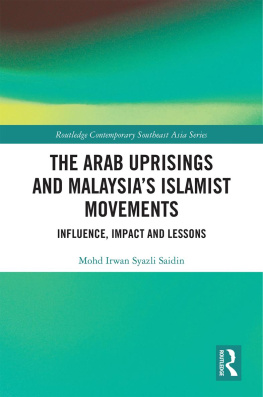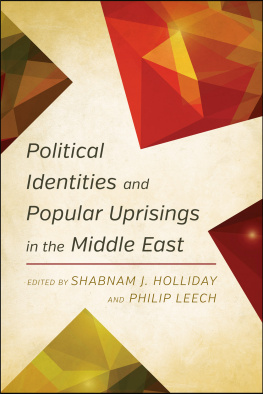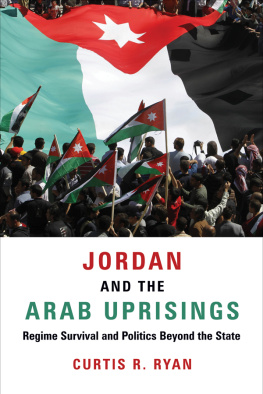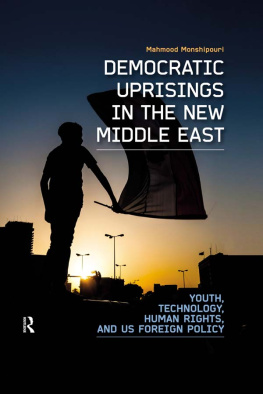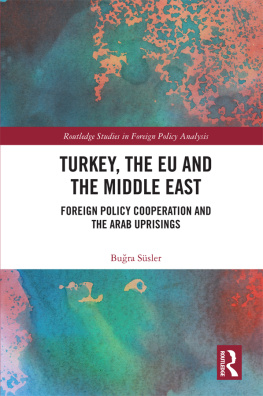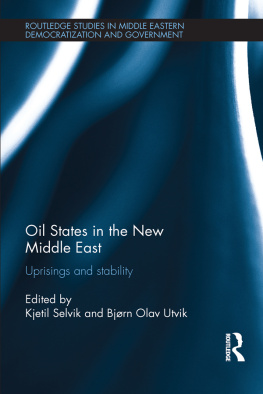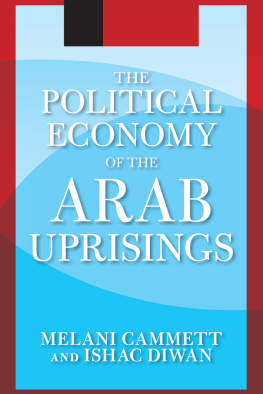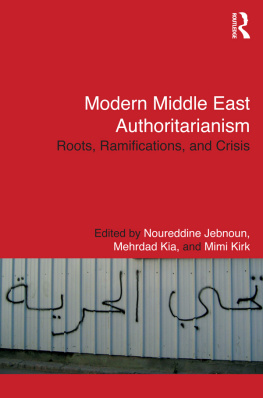Civil Uprisings in Modern Sudan
A Modern History of Politics and Violence
Series Editor : Paul Jackson ( University of Northampton, UK )
Editorial Board:
Roger Griffin ( Oxford Brookes University, UK )
Leonard Weinberg ( University of Nevada, USA )
Ramon Spaaij ( La Trobe University, Melbourne, Australia )
Richard Steigmann-Gall ( Kent State University, USA )
Aristotle Kallis ( Lancaster University, UK )
Matthew Feldman ( University of Teesside, UK )
A Modern History of Politics and Violence is a new book series that scrutinises the diverse history of political violence in the modern world.
It includes original studies, edited collections and reference works that explore the cultural settings and key actors that have allowed violent solutions to become seen as desirable somehow at certain points in history.
Published:
A British Fascist in the Second World War , Claudia Baldoli and Brendan Fleming (2014)
British Fascist Antisemitism and Jewish Responses, 1932-40 , Daniel Tilles (2014)
Forthcoming:
The Comparative History of Fascism in Eastern Europe , Constantin Iordachi (2015)
A Comparative History of Persecution and Victim Experience, Kitty Millet (2015)
Colin Jordan and Britains Neo-Nazi Social Movement , Paul Jackson (2015)
Transnational Fascism in the Twentieth Century , Matteo Albanese and Pablo del Hierro (2015)
Civil Uprisings in Modern Sudan
The Khartoum Springs of 1964 and 1985
W. J. Berridge
Bloomsbury Academic
An imprint of Bloomsbury Publishing Plc
Contents
First of all, I would like to convey my sincerest gratitude to the team at SUDAAK (the Sudanese Association for Archiving Knowledge) for kindly hosting me in their headquarters during my first research trip to Khartoum. My warmest thanks to Badreldin el Hag Musa, Ibrahim Moneim Mansur, Fawzia Galaleldin and Muhammad al-Hasan Muhammad Abdu.
I also wish to thank the team at the National Archives in Khartoum, including Awatif, Abd al-Moneim, Muhammad Azraq, Taj el Din and Hanafi, for allowing me access to their newspaper collection, which was of considerable assistance to this project. A special thanks goes to Khartoum Universitys tireless librarian, Abbas, for finding and photocopying so many books for me.
I am also indebted to John Ryle and Kit Kidner at the Rift Valley Institute, for providing me with employment during the first of these trips to Khartoum. I could not have done without the support of Hisham Bilal, for assistance in sorting out my visa at a time when I feared I might have had to curtail one of my two research trips.
The one person who made this project possible more than any was my tireless research assistant, Kamal Ahmad Yusif. Without his invaluable assistance in tracking down books and arranging interviews with otherwise untraceable figures, everything would have been a lot more challenging.
I also wish to thank Tom Law, Nevena Ilic, Gareth Curless, Christopher Vaughan, Becka Glade, Brent Siegel, Noorun Khan, Rhea Schmitt and Lykke Stavnes, for their companionship in Khartoum, as well as Nicki Kindersley who prevented me from getting lost on our research trip to the Sudan Communist Party Archives in Amsterdam. Enrico Ille and Ophera McDoom were very supportive of my project and further helped to facilitate interviews for me.
I must also express my gratitude to Jane Hogan and the rest of the team at the Sudan Archives in Durham for helping me access resources in Durham that proved highly valuable to this project. I must also mention Dr Cherry Leonardi and Prof. Justin Willis, who were highly supportive of this endeavour and whose advice during and after my PhD has continued to guide my approach towards Sudanese history up to the present.
I could never have completed this monograph without the help of my parents, Geoff and Sheila Berridge, who have supported me in more ways than one during the period in which I was writing this book. Finally, I must thank the team at Bloomsbury, including Paul Jackson, Rhodri Mogford and Emma Goode, for the professional, efficient and patient manner in which they have supported the production of this monograph.
| DUP | Democratic Unionist Party |
| FO | Foreign Office |
| FOO | Free Officer Organization |
| KUSU | Khartoum University Student Union |
| ICF | Islamic Charter Front |
| IISH | Institute of International Social History (Amsterdam) |
| IJMES | International Journal of Middle East Studies |
| ILM | Islamic Liberation Movement |
| IMF | International Monetary Fund |
| JEM | Justice and Equality Movement |
| NCP | National Congress Party |
| NIF | National Islamic Front |
| NUP | National Unionist Party (Also National Umma Party) |
| NCF | National Consensus Forces |
| NISS | National Intelligence and Security Services |
| NSO | National Security Organization |
| PCP | Popular Congress Party |
| SANU | Sudan African National Union |
| SCAF | Supreme Council for the Armed Forces |
| SCP | Sudan Communist Party |
| SLM | Sudan Liberation Movement |
| SPLA | Sudan Peoples Liberation Army |
| SPLA-N | Sudan Peoples Liberation Army (North) |
| SSO | State Security Organization |
| SSU | Sudan Socialist Union |
| SWTUF | Sudanese Workers Trade Union Federation |
| TNA | The National Archives |
| TMC | Transitional Military Council |
| UNF | United National Front |
Speaking of Tunisias Jasmine Revolution in the wake of the 2011 Arab Spring, the Sudanese president Umar al-Bashir declared: We are the people of intifadas and people know this. We were never imitators. However, for most urban Sudanese, the countrys real intifadas were the earlier civilian uprisings that overthrew Ibrahim Abboud and Jafaar Nimeiri. Unlocking their history is crucial to conserving and understanding Sudans pre-1989 democratic heritage.
The uprisings of 1964 and 1985 are remarkable for the fact that they overthrew entrenched military regimes by largely pacific civil action at a time when authoritarian governments in Africa and the Middle East could usually be replaced only by military means. It is not surprising, therefore, that they are the subject of a passionate and yet somewhat critical nostalgia amongst both oppositionists and the public in general, both within Sudan and the diaspora. They are proud to have participated in such exceptional political events and yet lament the failure of these uprisings to realize the promise they offered. While the two uprisings were treated with euphoria in the country at the time, the periods of liberal democracy that they ushered in failed to satisfy the ambitions of their engineers and were unable to prevent the re-emergence of the military in 1964 and 1985. In this regard, they offer a lesson perhaps a warning for the current generation of activists in both Sudan and the wider region. This book examines precisely why Sudan was able to produce such rare political phenomena, and attempts to explain why they eventually provoked such disappointment.

